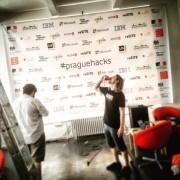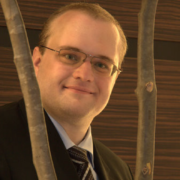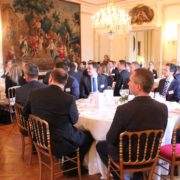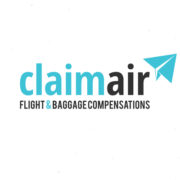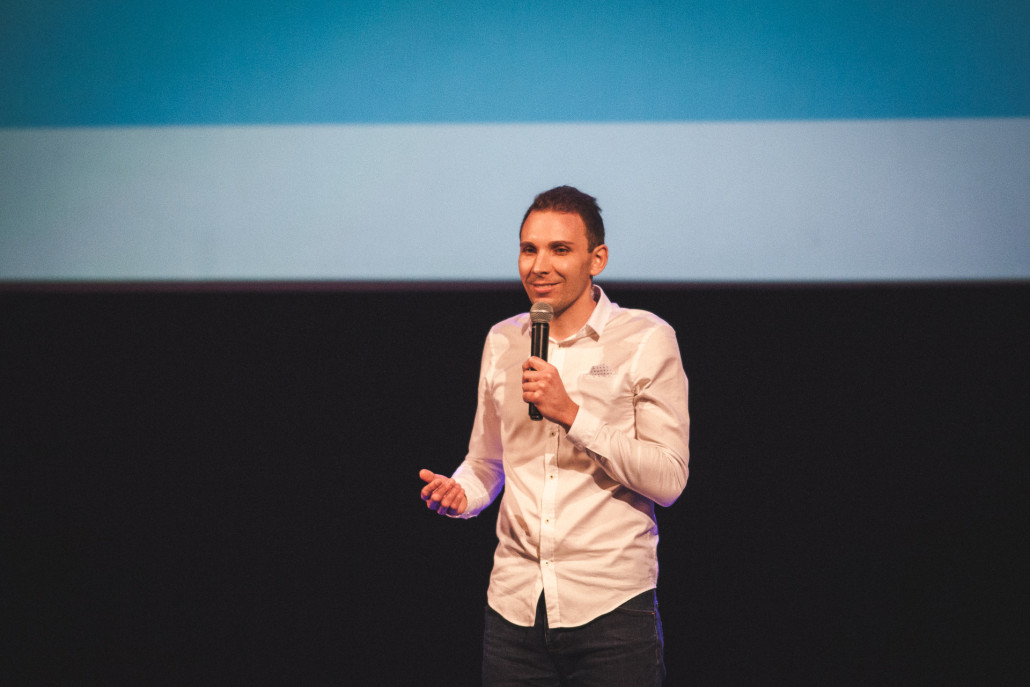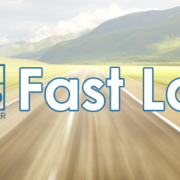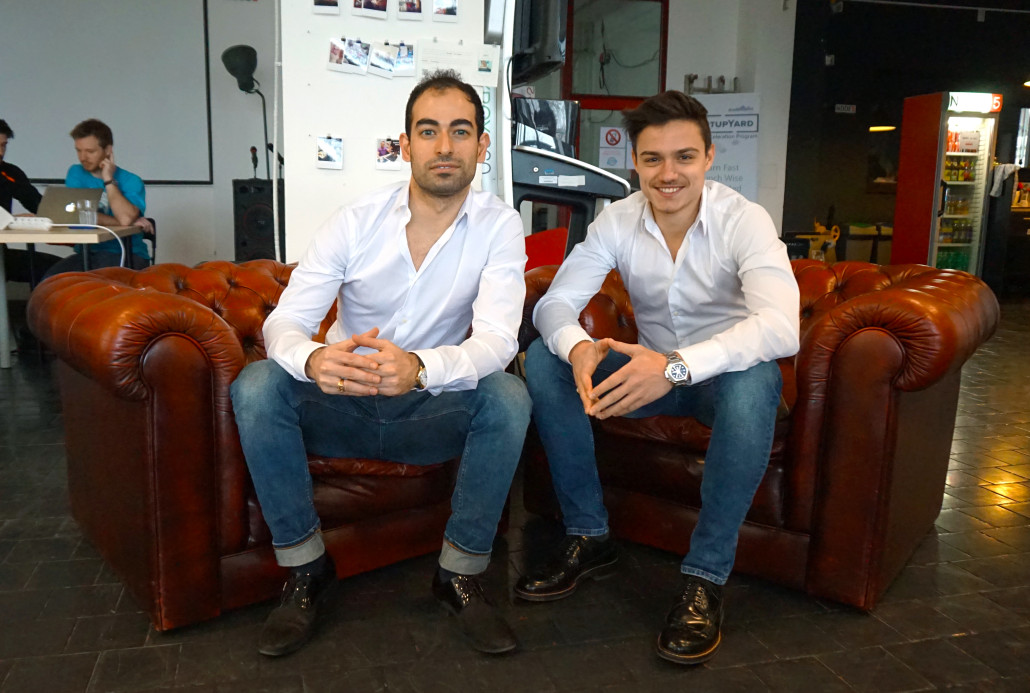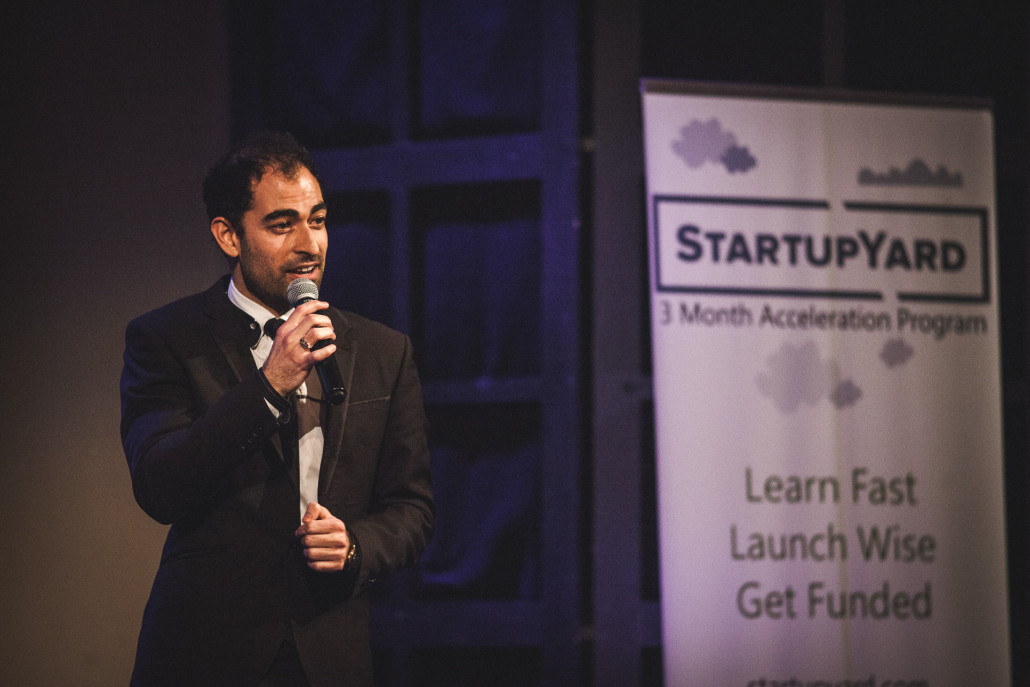Ondrej Krajicek is CTO of leading printing hardware/software development company Y Soft, and a prolific mentor and presence on this blog. Earlier this year, we featured Ondrej’s interview on education and entrepreneurship in two parts.
You can read them here: Make Failing Legal in the Czech Republic, and Density Doesn’t Equal Cooperation.
“We Need to Celebrate Results”
I caught up with Ondrej one more time recently to talk about his takeaways from StartupYard’s most recent cohort of startups, many of which have been in the news recently. Here’s what he had to say about that, and about what Y Soft is doing in the area of innovation and startups:
Hi Ondrej, you’ve just met with another cohort of StartupYard companies. Did anything surprise you?
Neuron Soundware and NeuronAD pop into my mind first. Generally I have been positively surprised by overall quality and diversity of all startups in this cohort. Yet again, each team had something unique and intriguing. I had quite interesting discussions with the guys from Boatify and I check their progress every now and then. Quite a niche market, but interesting app. I also enjoyed meeting other StartupYard mentors, Node5 tenants and it was also nice to meet some people from the previous cohort.
What do you see as some of the biggest challenges facing this latest group?
Productization and monetization. It is one thing to have a technology, a prototype product or proof of concept, and another thing to turn it into a product. I am an engineer, and I used to look at productization (the activity which turns software artifacts into software products) from a purely technical perspective. Yet this is mainly about the non-technical things. Do we have everything we need to support our salesforce? Can we support the product and help end users to work with it? Do we have a clear value proposition?
We still do not do productization right at Y Soft and when we feel we have it all, we discover a few more things we need to do for our partners to be comfortable selling our solution. Most startups have the comfort of selling to the end customers directly, which in one way is easier because you only have one line of customers.
Indirect business is about taking care of your entire sales channel and to deliver value to all of its parts. However, this is what we believe in and it also enables us to do more ethical business. We do not compete with our customers for one as some of our competitors do. Anyway, if you are struggling with productization, take a deep breath and work on refining your value proposition. Why should they buy?
One simple advice: you have a good value proposition if it’s short and can be translated into money saved or more money earned by your customer.
There were some teams who were struggling with engineering as well, and I believe that this is an indication of how difficult it is to get good engineers these days. I feel a bit embarrassed as a Czech to welcome a passionate team from abroad and tell them that they most probably won’t find skilled engineers here.
You mentioned to us that Y-Soft is expanding its cooperation with startups and investments. Can you talk about what the company is doing in this area, and what its goals are?
Y Soft Ventures is focusing on startups combining hardware and software. Internet of Things and Industry 4.0 if you will, but I am not known for liking buzzwords. Anyhow, we have just finished investments into Lumitrix and GreyCortex, both exciting additions to our portfolio. My colleagues also would not forgive me if I did not mention that they are still looking for investors into our first fund, so feel free to get in touch and invest ;-).
In general, we are focusing on companies where we have added value with our know-how and services as Y Soft. Y Soft Ventures is a gateway of sorts, providing funding and access to Y Soft resources, be it our corporate network, R&D, product design, manufacturing or finance. Good thing is that all the people you can engage with are still doing it and are not “consultants.” Our engagement towards startups is quite serious as we are now considering where to grow, having 6 companies in portfolio (I know, we are a small fund) and we are already concerned about our capacity to sufficiently engage with all of them.
How does Y-Soft position itself among other large Central European and Czech investors?
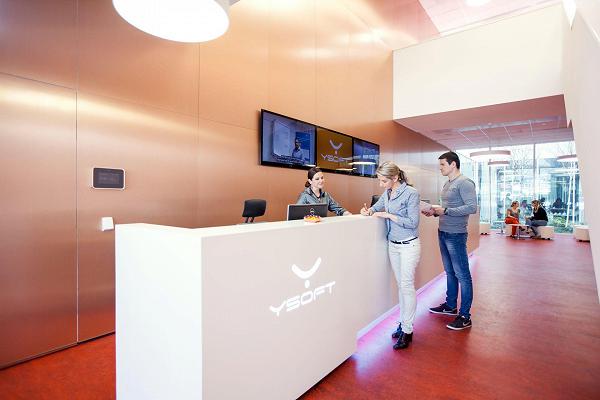
Y Soft is located in Brno, the second largest city in the Czech Republic
Early stage investments, product development, hardware and software with global potential, great teachable team, no bullshit and focused on results.
As this is the typical cliche, let me elaborate on what “results” means. I have been thinking about the Czech startup scene and our portfolio (albeit quite small) and I believe that we – as in we as a startup ecosystem – need to change our direction. Startup community is growing in Europe and especially UK (which might be leaving or not leaving EU) and we are progressing on the road to replicate Silicon Valley success. I strongly believe that we should stop replicating the valley and start building a mountain (or whatever). Because we are not doing it right and to a large extent, unless we are able to change our DNA and culture to the one they have, we will never make it right.
Take the famous fail fetish for instance. Chris Burry, one of the mentors at CET UCB told me: if you do not have enough customers willing to pay you for solving their problem, you don’t have a company, you have a hobby well paid by investors.
In other words. In Europe, we give awards, organize showcases, get togethers and do hackathons, we celebrate entrepreneurship, but we do not really celebrate results. And I would like to point out, that results are sold products, services delivered and money earned. Or another way how to put it as my colleague, Milos Sochor says: investment is not revenues. Sadly, there are so many startups who do not realize the difference.
If you want to replicate something from the valley, let it be this. 3 out of 4 startups fail, most of them during their first year of existence. If you dare to get a desk at a incubator, you have to deliver every single month, sometimes every single week. If it’s not revenues, than it is users, subscribers or connected devices. Quantified metrics which can be straightforwardly translated into revenues. If you fail, no hard feelings, you can try again. But do not stall, there are five people waiting in the queue for your desk.
And no, investors do not love previous failures. Investors like success, like anybody else and if you say otherwise, you are not fit for a startup. Failure is only good if it’s fast and leads to improvement. The challenge is that acknowledging failure is the hard part, but living the improvement is even harder. To me, Embracing Failure is about Lean Quality Management and the Deming wheel says Plan-Do-Check-Act, not Plan-Do-Like-Boast! That is another reason, why we are focusing on smart money – which is in general another buzzword, but for us, it means that we focus on delivering services to startups, connecting them with YSofters, not (just) money to spend.
So please, let us stop celebrating red numbers, losses, zeroed balance sheets and failed deals while repeating the how-cool-is-to-fail-again mantra. Let’s celebrate customers, revenues, break even events and self-sustained growth, to set the right example. And I cannot wait to see Pioneer Awards for making company self-sustained and profitable, not for making fuzz in media.
And by the way, it is not just me saying this. Many Entrepreneurs yet have to realize that it is very different to spend hard earned money and to burn investments.
I agree strongly with this sentiment. I was in Berlin recently, where there are over 200 coworking spaces and incubators, and seemingly anyone can subsist for a long time this way with no results. Do you think incubators are doing more harm than good at this point? How would you flip the model to focus on progress and success?
From my experience with incubators, I would refrain from generalizing. However, I believe that it is about motives and business models. Is the business model of an incubator to generate revenue on rent and services? If that is the case, then the incubator has no motivation to push for growth and economic success, they are happy to be full, regardless of who is there. Or let me use this – probably stupid – parallel: I have been in an incubator as a newborn kid myself, but for two weeks, not for 12 years.
The part of the solution as it works in Sillicon Valley is the demand. The demand there is so high, that most incubators or coworking space can securely make a living and be strict on their tenants at the same time. This probably would not work here in Europe as in many cases, the critical mass of starting companies is simply not there.
What happens when incubators would generate revenues on exits, i.e. participate as shareholders on successful companies even after these companies outgrow the incubator? This sounds like a dream of course, but with significant cash flow issues – the incubator is often not an investor and needs to generate short term revenue.
Is an incubator a viable commercial concept on its own? Or is it better a better fit for mixed sources of funding, such as having large companies as investors, as a result of joint effort of universities and corporations or as part of being a venture capital or private equity fund itself. Cash is king and unless the source of cash are successful startups generating profit, this will never change.
So long story short, incubators should become accelerators of failure and seek independence from rent/service revenues generated on startups. Seek (co-)investments, partnerships or other sources of short term revenues.
Y Soft has been working on some interesting new products in 3d printing. Can you talk a bit about that?
We have integrated the be3D team (welcome on board guys!) and recently launched our flagship (literally). A 2 meters high FDM printer for industrial prototyping called DeeRed 2. I love the beast, customers, such as automotive companies, use it for parts prototyping and design studies. It has also quite a few innovative things inside and we have patented some of them.
Patents are still quite a controversial issue for us and as the field of 3D printing is heavily patented, we have no other choice than join the club and patent our inventions as well. As well as many companies, for us our portfolio of patents is mainly a defense mechanism against trolls. We do not expect to chase our competitors, unless we face pure plagiarism. I am not particularly happy to work with patents, but it is necessary.
My recommendation to some of the startups, like NeuronAD in StartupYard was – if you believe in your genuine idea, you should patent it soon. Patents are assets and if you manage to have it granted, this will increase your value in the eyes of investors, because it may be a proof point of what you have. Not that all patents make sense, you still need to read through :-).
However, I still need to say that I strongly believe that in the fields with such a short innovation loop as IT, patents are hindering innovation.
Back to the 3D printing though. We strongly believe that 3D printing is not about devices, but about vertical integrations. And it is starting to show up in the market of entry level printers. Everybody likes them, but not everybody buys them. That is why we have created eDee, a 3D printer for education connected to SafeQ, our enterprise office workflows platform. And we will continue in this direction even further, but it is too soon to disclose more.
You’re very focused on education, and specifically changing the education system in the CZ. What have you (Y-Soft or you personally) been doing lately to that end?
It has been my personal mission to change how IT is taught here in the Czech Republic. However everything is evolving and so did my mission as well. Let me say that I strongly believe in the potential of the Czech Republic to become an economy based on high added value, not low staff costs as it is perceived now. If you have software companies coming here because for each headcount fired in the US they can get three open here and still save, you know that it is not sustainable. And yet, that’s what we are still encouraging as a country.
So I would reformulate my personal mission to support and perhaps drive refocusing on added value in the IT sector here in the Czech Republic. Good thing is that this mission is highly aligned with what Y Soft needs and does. Education is still a huge part of it, but a wise man asked me one day, to what end do you want to improve it?
We have two great assets here in the Czech Republic which we need to learn how to utilize to improve. The first one is our education and academia, the second one is basic research. We have fields with great traditions, be it engineering, chemistry, physics, mathematics or computer science. I strongly believe that time has come to formalize the role of companies in the education system and take them seriously. It can no longer be managed by schools and the Ministry of Education themselves, because they miss one crucial thing: the customer. How would you run a company without talking to your customers?
However, companies need to respect the culture and principles of education and academia. And if they do, they might get a chance to influence the curriculum, participate in teaching of the practical courses and make sure that the students are much better prepared for what they need them to do. Universities still do not accept the fact, that they cannot understand what the industry needs and why and they should start to listen to their customers.
The role of the government is crucial in this. First of all, they need to establish conditions encouraging this dialog by changing the education system funding to focus on quality and return of investment. This country cannot grow its GDP by having more librarians or painters. Not that these should not exist, but we all need to make sure that we have enough engineers, designers, chemists and mechanicians. And this is not about universities only, the same applies for secondary and vocational schools as well. The government needs to talk to the parents to explain where the future is and what fields have the biggest potential to grow and prosper.
What I am doing in this sense is that as a representative of Y Soft, I have finished my first year as a chairman of the IT Committee of American Chamber of Commerce in the Czech Republic [StartupYard is also a member]. My first goal here is to create a platform of like minded companies to create a platform to talk to universities and the government. AmCham is well suited for this as it is as an organization not involved in our Czech politics. It is above and beyond, focused on bringing best practices from the US to support business here. I managed to put together a good team of different IT companies and formulated a short strategy for the next two years, but it is too soon to see specific results.
I see the problem existing in two horizons, +5 and +15. The +5 horizon is about focusing on Universities to deliver change in five years. My objective is to improve the quality of the average graduates. We only have so many the best ones and we need much more. We need to make sure that the average candidate on the market is well prepared with moderate growth potential. Today, I often meet fresh graduates who do not know what is the worst case time complexity of quicksort and that is scary. For the record, it is O(nˆ2) and depends on the choice of pivot in relation with the input sequence.
The second +15 horizon is about opening the Czech education system to foreigners, focusing on basic and secondary education and helping parents and children to decide where to invest their lifetime. There is much more and I am still processing it. So maybe next time…
You told us that Y Soft continues to run its manufacturing operations in The Czech Republic. Why is that so important to the company?
Yes and we will plan on expanding our manufacturing operation here. The most important factor is flexibility. Having the manufacturing under our roof and close enables us to adapt and provide our services for prototyping and small-volume manufacturing to other companies. We provide our manufacturing capacity to our startups and at least one of them is already using it, with more to follow. On top of that, we have really learned our lesson how important is to keep R&D, product design and manufacturing teams close and talking. Otherwise, quality plummets and CoGS skyrockets ;-).
Quality, availability of skilled workers and short manufacturing cycles are also important reasons why we are doing so. Four years ago, we have faced the difficult decision whether to move to the cloud and stop doing hardware or whether to bet on it and expand in this direction. We have decided to stay focused on HW as well and then the Internet of Things hype came, so it was not a bad decision.


